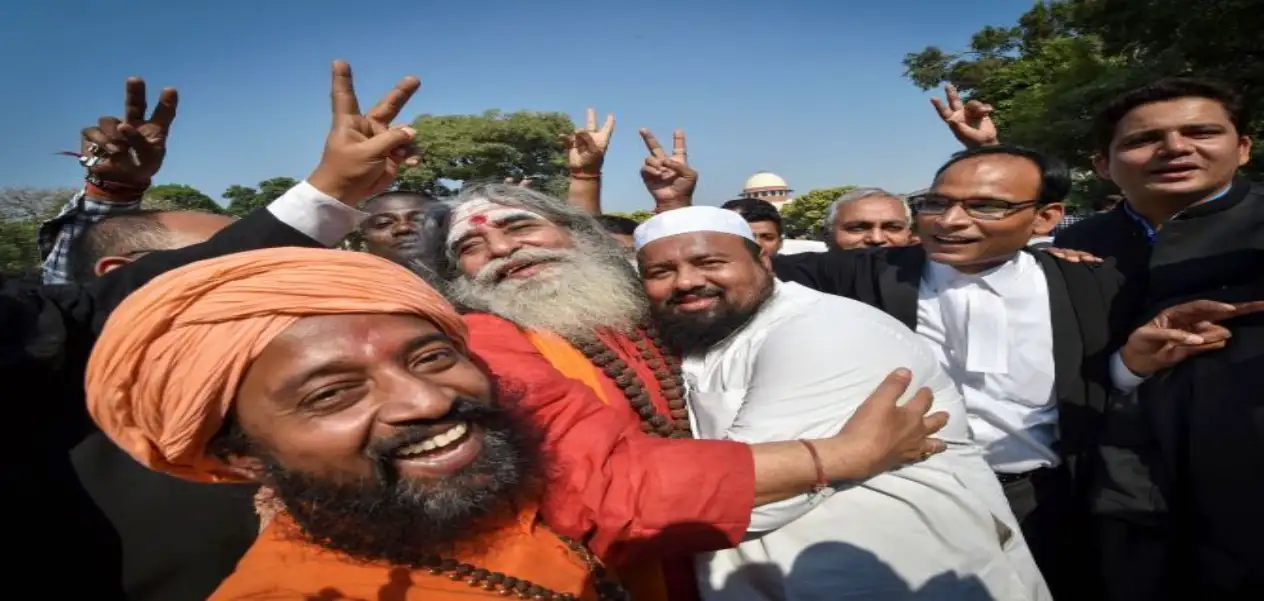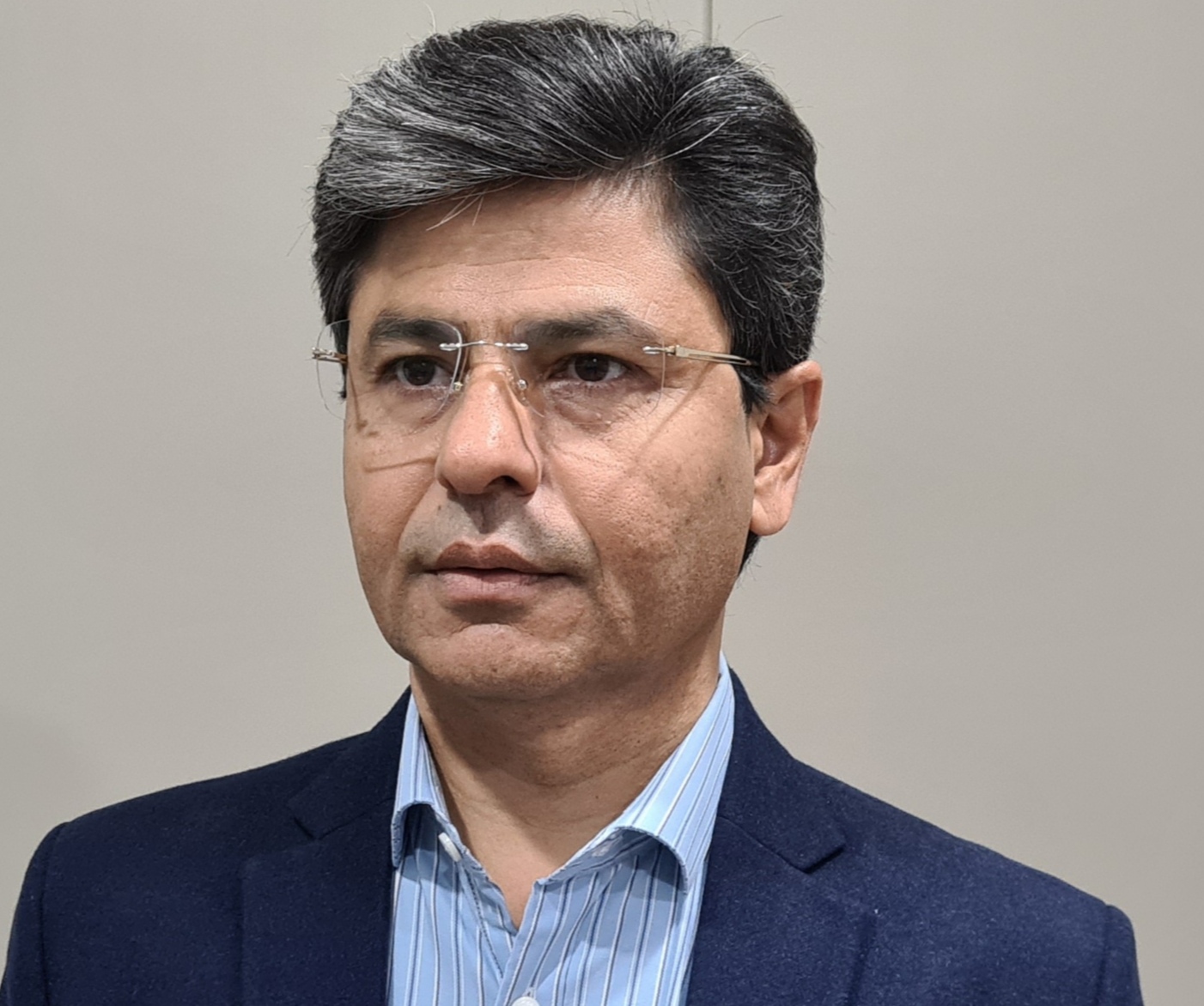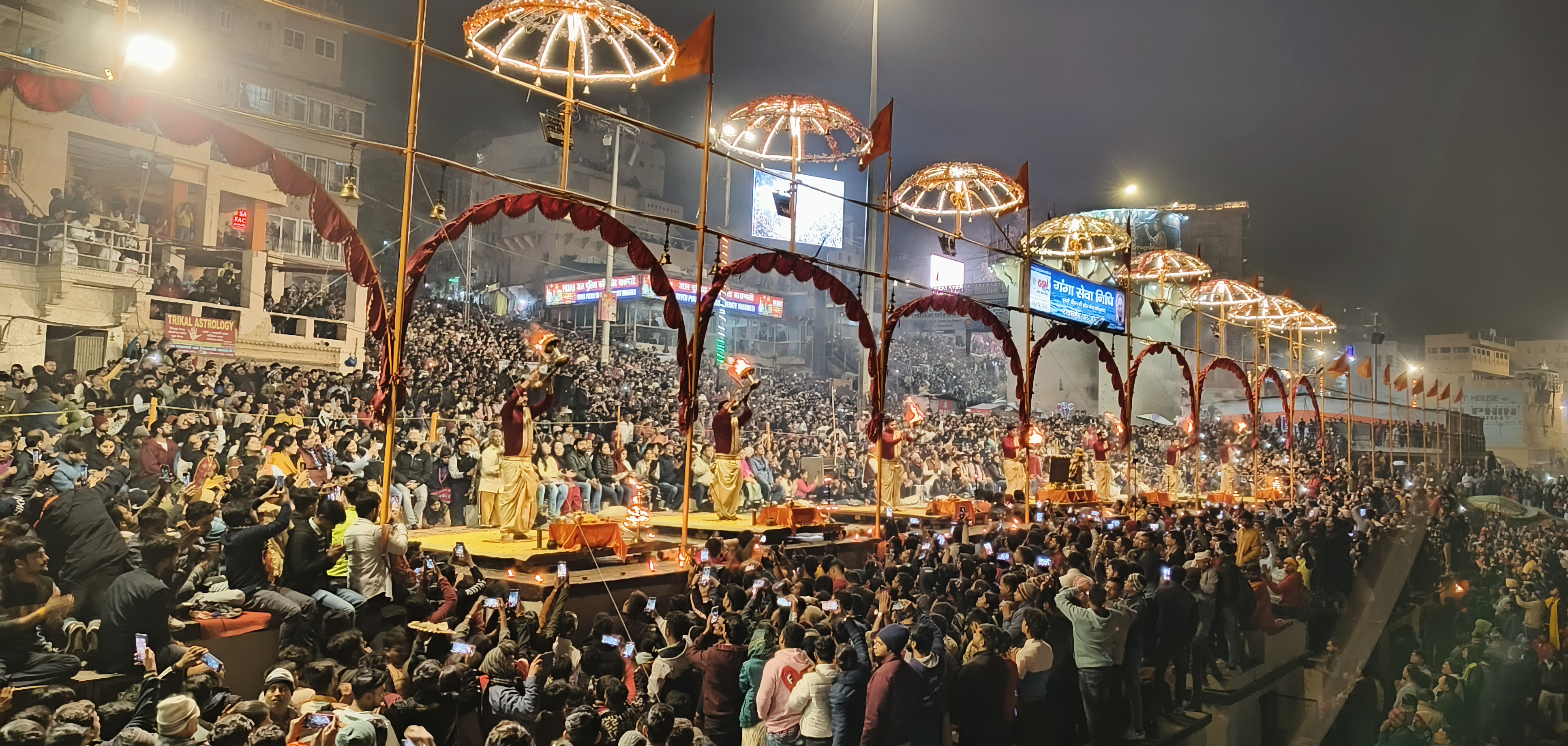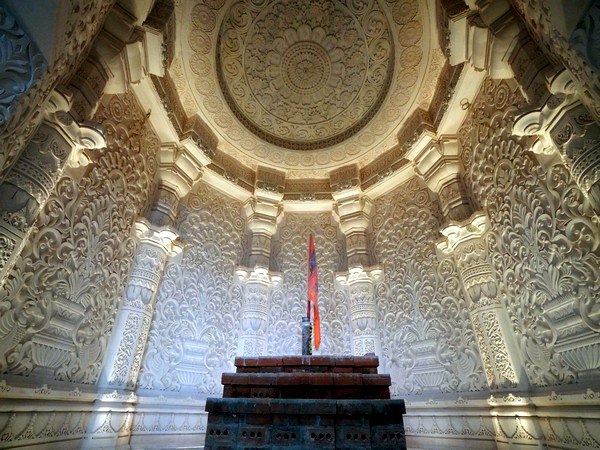
 Atir Khan
Atir Khan
It’s the beginning of the New Year. Not the beginning of a new year as per the Hindu or Islamic calendar. However, any occasion for optimism must not be wasted. Happy New Year!
Soon the euphoria around New Year celebrations will come to an end, but we must be careful about the negativity that some elements may throw at us, and in which politically-motivated social media becomes a big contributor.
Tamim Ansary, a US-based thinker and author of the bestselling book The Invention of Yesterday says social media’s political penetration into our private space has created much restlessness and agitation in the minds of people around the world.
India is no exception. In the ocean of multicultural information, we are unable to make sense of things around us. It’s like multiple musicians playing different tunes at the same time. Which is not music but noise.
We have to learn to listen to one tune at a time. On 22 January Ram Mandir consecration ceremony will be held at Ayodhya. Let us all contribute to making it a game-changer occasion by burying the politics of hate and communalism.
Let the day after usher in the dawn of the Ram Rajya of Gandhiji's dream in which there is no othering and which is all-embracing in its dharma of respect for all and guarantee of individual freedom and fair treatment for all.
No doubt it is an epoch-making event with the potential to heal Hindu-Muslim relations for all times to come. We must not miss this opportunity to turn the tide of history in a positive direction. We can use this opportunity to bridge the Hindu-Muslim divide by reassuring the Muslim community of protecting their faith, life, property, and constitutional rights. Doing this will pave the path of national reconciliation and will be cherished as Prime Minister Modi’s most important contribution to nation-making.
 The last Aarti of the year 2023 at the Ganga Ghat in Varanasi
The last Aarti of the year 2023 at the Ganga Ghat in Varanasi
It is heartening to see that many Muslims have accepted the court verdict and are eager to participate in this grand event at Ayodhya.
Dr. Abdul Quadir Khan, principal of Hassan PG College, Jaunpur, who has contributed Rs 1.11 lakh to the temple trust. says that many Muslims criticised him for donating money for a temple. However, today the same people are praising him for the 'good gesture that helps build confidence between two communities.' Many Indian Muslims would be looking forward to an opportunity to participate in the grandiose celebrations at Ayodhya and around and must be trying to figure out a way of going about it.
Shabnam Shaikh, a burqa-clad woman from Mumbai said she would visit Ayodhya for the celebrations even though she is a believer of Islam. She is clear that this gesture will not make her a kafir!
In the present scenario, Indian Muslims should not be targeted or made to feel guilty for the mistakes of the foreign invaders of the past. They are in no way responsible for the excesses of the past. Their rights as Indian citizens are as important as that of any other community in the country.
Noted scholar Abdul Samad Khwaja says the temple of Maryada Purushottam Ram will be incomplete if it does not inspire forgiveness, kindness, and compassion leading to a permanent conflict resolution.
After all the Shri Ram’s legacy is of upholding one’s word. We need to honour this most important ingredient of the message of Shri Ram. Let us now uphold justice which is the essence of Ram Rajya and the reason Gandhi ji said Ram Rajya was also the reflection of the Caliphate of Hazrat Abu Bakr and Hazrat Omar as its purpose was protecting the oppressed and establishing the rule of law.
May it be redeemed as a true tribute to Shri Ram. Let this unite us in building an infallible temple of trust and faith to symbolize communal harmony and religious tolerance.
When Hindus who have always shared joys and sorrows with Muslims celebrate the construction of the Ram Mandir, then Indian Muslims need not fear the erosion of their places of worship and religious freedom which the State is duty-bound to protect.
India has always had an inclusive culture. Hindus have been hearing azans coming from lakhs of mosques for centuries and have been tolerant of Shia tazia processions, similarly, Muslims have been making idols of gods and goddesses, showering flower petals on Hindu pilgrims coming to collect holy Ganga water from the ghats. These sentiments need to be cherished and transferred to the new generation if we wish to carry forward our civilizational values.
 The Sanctum Sanctorum of Ram Mandir at Ayodhya
The Sanctum Sanctorum of Ram Mandir at AyodhyaThese qualities have made Indian civilization stand out. Tolerance and human rights have been our lighthouses for thousands of years, fast disappearing from the rest of the world.
In India for a population of twenty crore Muslims, there are seven lakh mosques found in every nook and corner of the country. In stark contrast, Belgrade has one Bajrakli mosque built in 1575 for a population of 2.3 lakh Muslims of Serbia. These statistics tell a wonderful story.
There is a need to be mindful that there will always be people who will tell you that don’t celebrate New Year or don’t participate in any Hindu or Muslim festivals.
These people live in oblivion, a mindset that is not only regressive but also very dangerous. Such people need to be identified by both the communities and singled out. They are not a very large number. A majority of Indians are peace-loving.
The deep penetration of the cyber virtual world is inevitable whether we like it or not. We hear Quranic surahs, bhajans, and religious sermons on YouTube. Due to his penetration of information into our private space from multiple directions via mobile phones and other gadgets, our innocence has gone away and has limited the feel-good factor of our communities, which in the past had been living in their protected belief systems.
Polarising push through social media creates feelings of confusion and insecurity. When we wake up in the morning our day begins with swiping social media accounts to connect with the rest of the world. Our minds then become full of cobwebs.
When we see posts of religious supremacy and the upmanship of religions, our minds are polluted. The insecurity gives rise to the need for purity of culture, which India is not used to. But given the inevitability of this revolution, we are trying to come to terms with it. Surely it will settle down but it will take time to make sense and our sensibilities to adjust to the changing times.
In the time between we have to be very cautious. Some intellectuals living in Urban cities are becoming more radicalized than people living in the villages.
One reason for this could be attributed to the harmful exposure to the information belittling and denigrating the other, this adversely affects our psyche.
In contrast, you will find that rustic wisdom is still much better. It is due to their penetration of their immediate environment that people living in villages are still living in harmony, in their limited world. But even they are not insulated by the worldwide polarization of this century.
We are now exposed to the world of knowledge which was not available to us in the past. Our democracy ensures that we have the right to choose between what we think is right and wrong.
This year resolve that no polarizing content would be forwarded to friends, relatives, or the community. This year’s resolution list should also include improving social harmony in housing societies, community centers, district centers, and even at the village level.
ALSO READ: Malaysia: Islamic nation where coexistence and tolerance is a way of life
All Indians need to rise above their religious preferences and work collectively for the nation, and social causes such as poverty eradication, education, health, housing, hygiene, and pollution control. By doing so we will align with the vision of Prime Minister Modi’s guarantee and have reasons to stay upbeat for the entire year ahead of us.
